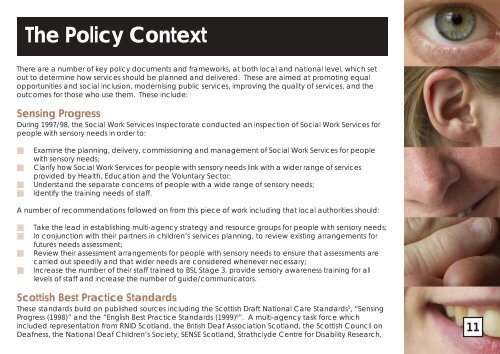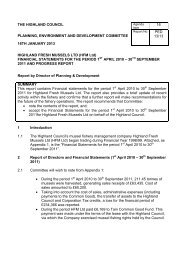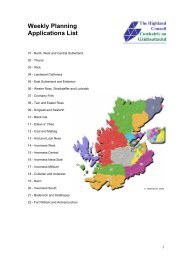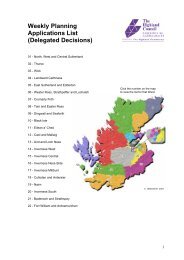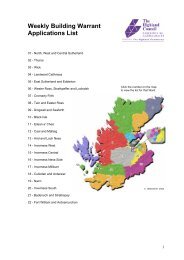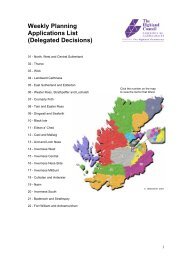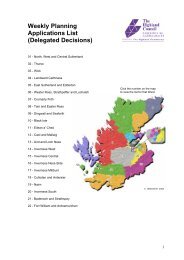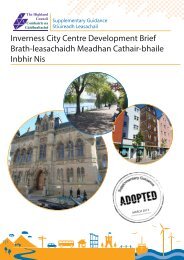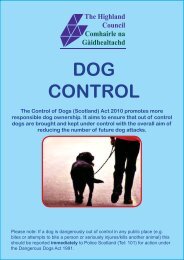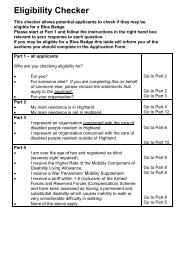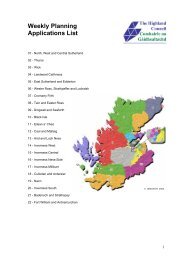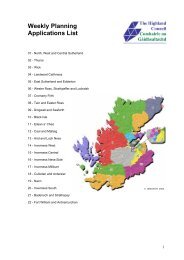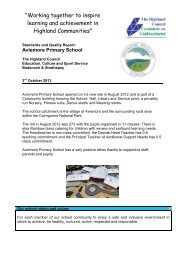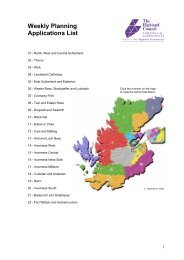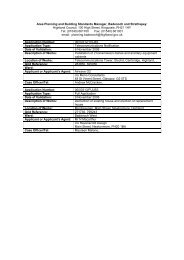A Single Strategy for Sensory Needs - The Highland Council
A Single Strategy for Sensory Needs - The Highland Council
A Single Strategy for Sensory Needs - The Highland Council
Create successful ePaper yourself
Turn your PDF publications into a flip-book with our unique Google optimized e-Paper software.
<strong>The</strong> Policy Context<br />
<strong>The</strong>re are a number of key policy documents and frameworks, at both local and national level, which set<br />
out to determine how services should be planned and delivered. <strong>The</strong>se are aimed at promoting equal<br />
opportunities and social inclusion, modernising public services, improving the quality of services, and the<br />
outcomes <strong>for</strong> those who use them. <strong>The</strong>se include:<br />
Sensing Progress<br />
During 1997/98, the Social Work Services Inspectorate conducted an inspection of Social Work Services <strong>for</strong><br />
people with sensory needs in order to:<br />
<br />
<br />
<br />
<br />
Examine the planning, delivery, commissioning and management of Social Work Services <strong>for</strong> people<br />
with sensory needs;<br />
Clarify how Social Work Services <strong>for</strong> people with sensory needs link with a wider range of services<br />
provided by Health, Education and the Voluntary Sector;<br />
Understand the separate concerns of people with a wide range of sensory needs;<br />
Identify the training needs of staff.<br />
A number of recommendations followed on from this piece of work including that local authorities should:<br />
<br />
<br />
<br />
<br />
Take the lead in establishing multi-agency strategy and resource groups <strong>for</strong> people with sensory needs;<br />
In conjunction with their partners in children’s services planning, to review existing arrangements <strong>for</strong><br />
futures needs assessment;<br />
Review their assessment arrangements <strong>for</strong> people with sensory needs to ensure that assessments are<br />
carried out speedily and that wider needs are considered whenever necessary;<br />
Increase the number of their staff trained to BSL Stage 3, provide sensory awareness training <strong>for</strong> all<br />
levels of staff and increase the number of guide/communicators.<br />
Scottish Best Practice Standards<br />
<strong>The</strong>se standards build on published sources including the Scottish Draft National Care Standards 5 , “Sensing<br />
Progress (1998)” and the “English Best Practice Standards (1999) 6 ”. A multi-agency task <strong>for</strong>ce which<br />
included representation from RNID Scotland, the British Deaf Association Scotland, the Scottish <strong>Council</strong> on<br />
Deafness, the National Deaf Children’s Society, SENSE Scotland, Strathclyde Centre <strong>for</strong> Disability Research,<br />
11


